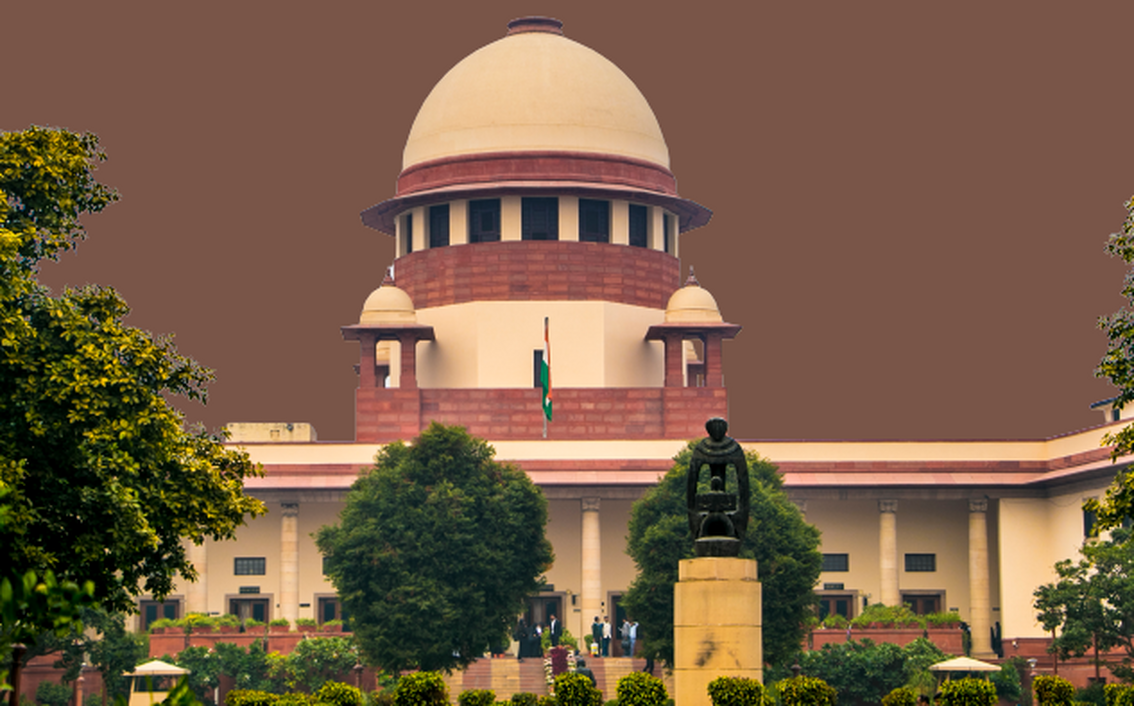Tribunal has to verify & examine claims in the context of Rule that governs the field: Top Court sets aside Karnataka Administrative Tribunal’s order quashing 2007 Notification for filling up posts of Home Science lecturer
Justices Pamidighantam Sri Narasimha & Aravind Kumar [22-02-2024]

Read Order: SMT. VIDYA K. & ORS v. STATE OF KARNATAKA & ORS [SC- CIVIL APPEAL Nos. 2899-2907 OF 2024]
LE Correspondent
New Delhi, February 23, 2024: The Supreme Court has clarified that service jurisprudence must begin and end with rules that govern the process of qualification, recruitment, selection, appointment and conditions of service. Appointments to these posts are in the nature of ‘status’ and the service as well as its conditions can be unilaterally changed by the amendment of the Rules.
The Karnataka Public Service Commission issued a notification on 24.12.2007 for filling up approximately 2500 posts of lecturers in the Government First Grade Colleges. Following the advertisement, the appellants in the lead matter and two other connected matters, having the required qualification, were selected to the post of Home Science lecturer on 23.09.2008.
The issue before the Division Bench of Justice Pamidighantam Sri Narasimha and Justice Aravind Kumar was whether a notification for filling up 18 posts of lecturers of Home Science in First Grade College run by State of Karnataka is liable to be quashed for not providing the breakup of the ‘subjects’ within Home Science. The Karnataka Administrative Tribunal quashed the notification on the ground that specifying the subject categories is necessary for advertising the vacant posts. Writ Petitions filed by the Karnataka Public Service Commission as well as the successful candidates were dismissed by the High Court confirming the order of the Tribunal. Thus, the present appeal was filed before the Top Court.
The Bench was concerned with the Karnataka Education Department Service (Department of Collegiate Education) (Recruitment) Rules, 1964, and the Karnataka Education Department Service (Department of Collegiate Education) (Special Recruitment) Rules, 1993.
The Top Court took note of the admitted fact that the recruitment was to the post of a lecturer in an undergraduate program in Government First Grade Colleges. The post in question being a lecturer post, was also evident from the pay scale of Rs. 8000-13500 that it carried.
The Bench placed reliance upon Rule 3 of the 1993 Rules which provides qualifications which concerns appointment to the post of lecturers in undergraduate programs. This is indicative of the fact that these lecturers, upon appointment, would be teaching undergraduate students in the Home Science department. “The qualification is therefore, confined to, a post- graduation degree in Home Science. As long as a candidate holds a master’s degree in Home Science, he/she will be qualified for applying to the post. It does not matter in which speciality within Home Science the master’s degree is obtained”, the Bench said.
The Top Court also referred to a statement made by the University Grants Commission that there was no separate subject wise provision for the post of lecturers Home Science.
The Bench further clarified, “Service jurisprudence must begin and end with rules that govern the process of qualification, recruitment, selection, appointment and conditions of service. Appointments to these posts are in the nature of ‘status’, which means that the service and its conditions can be unilaterally changed by the amendment of the Rules. The first duty of the Tribunal is to verify and examine the claims made by a party in the context of the Rule that governs the field. If the Rule does not prescribe a subject-wise speciality, there is no justification for the Tribunal or the High Court to examine the propriety, or for that matter, the beneficial effect of the rule.”
Finding error in the judgment of the High Court, the Bench opined that an undergraduate student would be required to choose a specialisation when he takes up a PG program has no bearing on the qualification of the lecturer teaching the undergraduate students. Further, the assumption of the High Court that Home Science is not a subject, instead it is a stream, or a genesis had no application to the recruitment of lecturers for an undergraduate program. For under-graduation, Home Science in itself is the subject.
Noting that UGC also considers Home Science as a subject, with subject code no. 12, as per the latest information bulletin issued by it towards National Eligibility Test conducted in December, 2023, the Bench added, “To teach undergraduates, the qualification prescribed is simply a post- graduation degree in the subject of Home Science. We repeat, it does not matter in which subject of Home Science that the post-graduation is obtained.”
It was also noticed that lecturers of Home Science in undergraduate program run by the Government First Grade Colleges have been treated as one cadre and recruitment to the posts were advertised as such. As per the Bench, if one has to follow the logic adopted by the High Court, then the entire notification will collapse as the subjects of History, Economics, Political Science, Sociology etc. are also mentioned without the so-called specialisations and they must be set aside by the same logic.
“We conclude by holding that the High Court committed an error in not focussing on what the Rule provides for and whether the advertisement is in consonance with the Rule. If the High Court had confined itself to the basic features of judicial review, it would have avoided committing the error that it did”, the Bench held while allowing the appeals.
Sign up for our weekly newsletter to stay up to date on our product, events featured blog, special offer and all of the exciting things that take place here at Legitquest.




Add a Comment